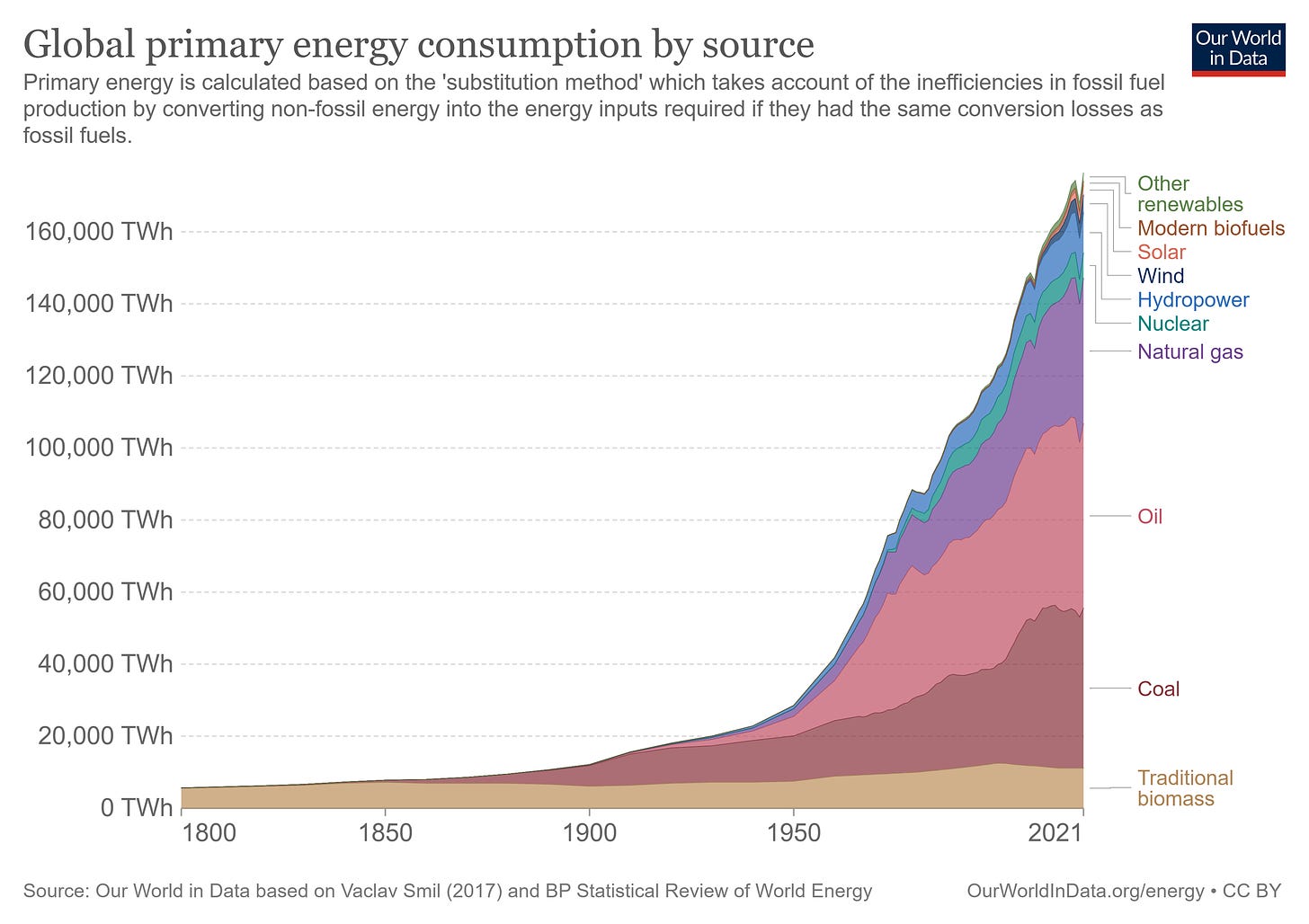The Courage to be Wrong
Based on an article previously published on LinkedIn (minor edits)

I have covered a lot of ground with what has been already published this year [first on LinkedIn and now Substack]; safety, economics, thermodynamics and even the provenance of what we might call blue products. Latterly I started to write about the environmental cost of producing clean technology as a factor to be weighed in the balance.
Recognising that renewables are not an extraction-less industry, can help keep us on the yellow brick road of the energy transition, without straying into an alternative type of danger for want of the courage to admit it’s there. We are nowhere near home yet and there is a lot of unmapped territory in between.
The claim often made by opponents of domestic hydrogen that by virtue of the thermodynamics electricity will always be cheaper. This is, as I have consistently said, wrong.
Making claims without basis has proven to be an effective recruitment tactic for the anti-hydrogen lobby and has given 'an assist' to frightening the people of would-be Whitby Hydrogen Village. It made me think of what is takes to have the courage to admit being wrong, or perhaps what might be worse, to accept you have been duped by the condescension of false concern.
Sometimes you have to pay attention to what is behind the curtain.
I would never claim that in any given situation, hydrogen would always be cheaper than electricity but I am also aware that there is a differential value between something that has the capacity to emit carbon and something that doesn't.
That includes the chemical composition of feedstocks that go into electrical generation. I am not against electrification and I see the value but that does not move us away from hydrocarbons quickly enough.
Don't forget that the entire point of the energy transition is to get the carbon out of the energy mix. Perhaps it would make us less likely to forget this if we called it the emissions transition. Maybe it would help us tame our fear of blue products.

Fossil fuel demand has almost doubled every 20 years since 1900. You may look at the figures and doubt it, after all, 20 years ago fossil fuels made up over 80% of world energy demand and it is currently it is about the same at 84%. This is easily explained. Nothing really changed proportionally but the entire energy-pie has gotten so much bigger and it will grow for the next hundred years. No matter how much we would like it to be otherwise (and believe me I would), renewables have not displaced carbon-based energy, and nor can they without considerable help.
So look the graph below - can you see that and honestly think energy substitution is working anything like quickly enough? How obvious does it need to be before it is realised that without decarbonising hydrocarbon feedstocks there is no transition.

It's possible to play some tunes here to maintain the self-deception; it might be tempting claim that renewables are displacing demand for fossil fuels that would otherwise be there. To rely on that, you have to ignore the significant upfront energy costs that must be sunk into building the renewable infrastructure, and in the mining of the materials for manufacture.
We are not yet good enough to be managing that in a huge rush because there is insufficient understanding of the confounding geopolitical issues, even before even getting into the consequences. We must carry on building renewables but let's not fool ourselves that they are displacing significant carbon in the medium term.
Blue hydrogen is part of a decarbonising solution whether the feedstock is biomass, waste or natural gas because the process captures carbon that would otherwise be emitted and we can use a lot of the infrastructure that already exists. There is no ambiguity in the displacement of carbon because it is acting on the feedstock.
Sure, carbon removal carries an energy cost, but if anything that benefits the competitiveness of harvested renewables like wind and solar. Leaving it in the ground is to forgo 100% of the energy that could help us through the transition and there is no sign that will happen.
The only demand-led retirement planning for natural gas is to create a market for derivative decarbonised products; in the future there can be opportunities to displace it with green equivalents.
To do this at speed, the carbon must be driven towards zero whilst preserving or reclaiming as much energy as possible, including the closing of the loop on waste.
Even if the targets for stopping natural gas production were to be missed, massive carbon volumes will still have been prevented from entering the atmosphere, which on its own would be a decisive win. Can we take a second to remember that this is the essential purpose of the energy transition in the first place?
There is an opportunity to scale up the removal of carbon from the energy mix that we cannot afford to miss. I have no problem with fossil fuels being stranded if they are no longer needed to progress towards a more sustainable future, by which I mean, for the entire planet. I am not going to agree if you want to take the scaffolding down before the job is done.

The post I link below1 is perhaps cause for hope that the reality might be unavoidable for even the most vociferous hydrogen oppositionists. Will they have the courage to admit they are wrong? It hardly matters, because in responding to what they say, I am only ever trying to reach you.
It is necessary to rethink and give other people the courage and space to rethink too. That's what I want to do.
Frank Zappa once said that, contrary to what science suggests, stupidity was more plentiful than hydrogen in the universe. It was meant to be figurative but now I can see a literal lesson within it. Don't be part of that confederacy of dunces who are trying to displace hydrogen by the shear force of their stupidity. Don't fall for the rhetoric and don't be intimidated by their standing army of strawmen.





I am not sure why the picture credits disappeared. I added and updated three times but they just disappeared. Anyone have a similar problem?